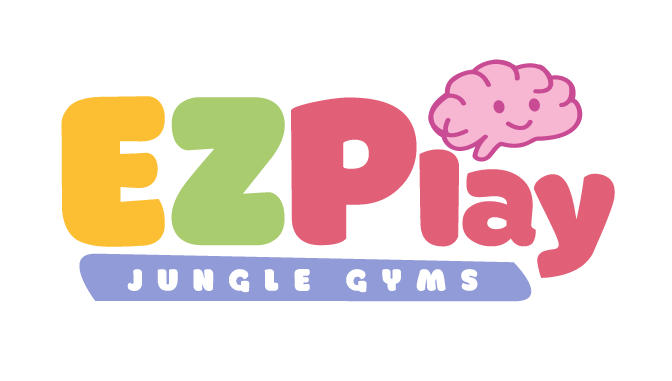
How to Create a Montessori-Inspired Indoor Play Space (Even in a Small Home)
 Written by Dr. Stefanie Rodsater, Pediatric Chiropractor and Founder of Building Brilliant Brains
Written by Dr. Stefanie Rodsater, Pediatric Chiropractor and Founder of Building Brilliant Brains
You don’t need a Pinterest-perfect home- or an entire playroom-to bring the power of Montessori into your everyday life. You just need a space where your child can move, explore, and grow with purpose.
At its core, Montessori is about respecting your child’s natural development, encouraging independence, and creating an environment that invites deep focus and self-directed learning.
And guess what? Movement is at the heart of it all.
Let’s build a Montessori-inspired indoor play space that supports your child’s body and brain-even if you’re short on space.
What Makes a Play Space Montessori-Aligned?
A Montessori environment is:
✅ Child-sized + accessible
✅ Organized and intentional
✅ Calm and visually uncluttered
✅ Stocked with open-ended materials
✅ Rich in sensory and motor experiences
✅ Designed for independence + purposeful movement
This is where your EZPlay pieces come in beautifully.
Step-by-Step: Setting Up Your Montessori Play Space
1. 🧹 Clear the Clutter
Montessori encourages fewer, high-quality tools. Choose just a few items that invite real engagement, not passive entertainment.
2. 🧸 Choose Open-Ended Movement Materials
Think ramps, slides, arches, and balance tools—not screens or battery-powered toys. The more your child has to do with their body and imagination, the better.
Montessori-Friendly Tools from EZPlay
🛝 Pikler Triangle + Arch + Slide
This is a Montessori staple. It encourages climbing, crawling, sliding, and exploring independently—at the child’s own pace and rhythm.
🐼 Panda Playground Jungle Gym
Low-profile and natural, it’s ideal for young toddlers gaining confidence in climbing and coordination.
🧘 Wobble Balance Board
Supports balance, core strength, and creative movement. Rock, stand, turn it into a ramp, or use it as a bridge—limitless uses with zero setup.
🧩 Double-Sided Play Mat
Creates a defined movement area while still allowing full freedom to roll, reach, and explore in safety.

3. 👀 Keep It Visually Calm
Choose natural materials (like wood), low shelves, and muted tones. Your space doesn’t need to be elaborate—just inviting.
4. 💡 Rotate Materials to Spark Curiosity
Offer a few tools at a time, and rotate every week or two. This keeps interest high while honoring the Montessori idea of simplicity + order.
Why Movement Is the Hidden Hero of Montessori
Maria Montessori believed that “movement and cognition are closely intertwined.” Children don’t learn by sitting still—they learn by moving through space, using their muscles, and making discoveries with their whole body.
That’s why having tools for climbing, balancing, rolling, and crawling at home is just as important as having books or sensory bins. The brain needs movement input to organize itself for focus, language, and emotional regulation.

Final Thoughts
Creating a Montessori-inspired play space doesn’t require a new house or a full room. It requires thoughtful tools, safe movement zones, and respect for how your child learns best: through purposeful, self-directed play.
🧠 Ready to create a home that supports independence and brain development?
Explore EZPlay’s natural, movement-rich play tools like the Pikler Set, Balance Board, and Double-Sided Play Mat to start building your Montessori-inspired setup today.






